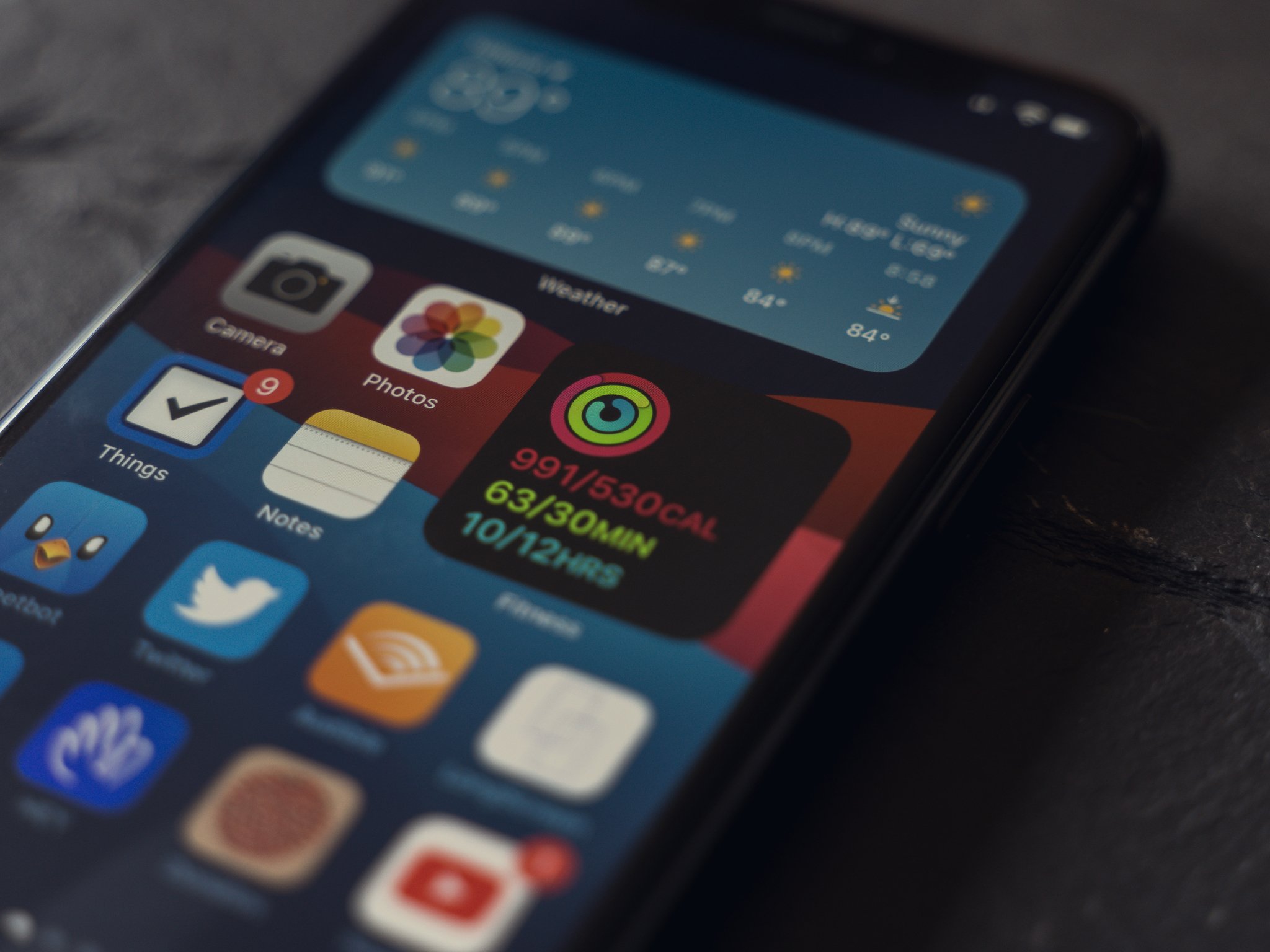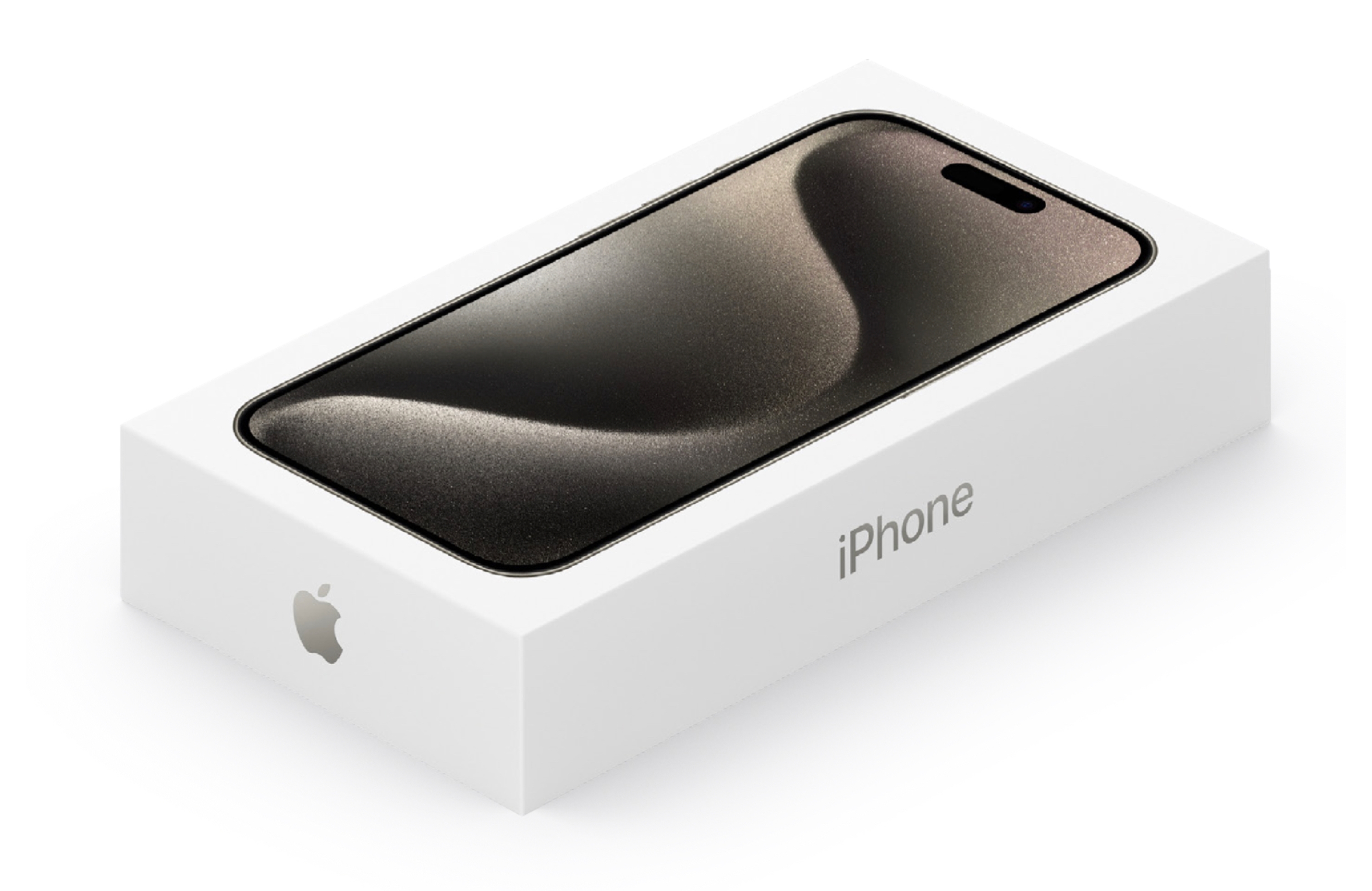iOS 14.5 arrives with AirTag support, App Tracking Transparency, and more
Apple has released iOS 14.5, the latest OS version for iPhone. Update now!
Apple has released iOS 14.5 to the public. It’s a fairly sizable update that adds support for Apple’s new AirTag tracker, enhancements to Siri, App Tracking Transparency, and more.
What’s new in iOS
April 26, 2021: Apple releases iOS 14.5 with AirTag support, App Tracking Transparency, and more
Apple has released iOS 14.5, a major update to the iPhone operating system that adds support for Apple’s new AirTag trackers, new Siri enhancements, and App Tracking Transparency. Apple Watch owners who also download watchOS 7.4 will now be able to unlock their iPhone (after the iOS 14.5 update) using Face ID while wearing a mask. This update also allows you to stream Apple Fitness+ content to any AirPlay 2-enabled TV or device.
iOS 14: Everything you need to know
March 26, 2021: Apple releases iOS 14.4.2 with security further updates
Apple has released iOS 14.4.2, another small update for iPhone. This update again brings security patches on top of those released earlier this month. Apple has also released iOS 12.5.2 for older devices.
March 8, 2021: Apple releases iOS 14.4.1 with security updates
Apple has released iOS 14.4.1, a fairly small update for iPhone. This update brings a small set of security fixes.
January 26, 2021: Apple releases iOS 14.4
Apple has released iOS 14.4, a relatively minor iPhone update that brings number of bug fixes, as well as a few small new features. The QR code scanner on iPhone can now recognize smaller QR codes, and you can now select a classification (like headphones, car stereos, and hearing aids) for Bluetooth accessories in Settings. Owners of iPhone 12 series devices will now also get notifications when their camera can’t be verified as a new, genuine Apple camera, which would likely occur in the case of a third-party repair.
January 11, 2021: Apple releases iOS 12.5.1 for older iPhones
Apple has released iOS 12.5.1, an update for older iPhones that couldn’t update to iOS 13 or later. This update fixes issues that some users were encountering with Apple’s COVID-19 exposure notifications.
December 14, 2020: Apple releases iOS 14.3
Apple has released iOS 14.3 for iPhone. This is a major update that brings Apple Fitness+ and AirPods Max support for all iPhone users. This release also brings ProRAW on the iPhone 12 Pro and iPhone 12 Pro Max devices. It also includes Privacy information on the App Store, as well as other features and bug fixes for the iPhone.
November 19, 2020: Apple releases iOS 14.2.1
Apple has released iOS 14.2.1 for iPhone. It’s a fairly minor update that nevertheless fixes a few major bugs. An issue that caused some MMS messages not to be delivered has been corrected. Made for iPhone hearing devices should now work properly when you’re listening to audio on your iPhone. Finally, an problem that caused the Lock screen on the iPhone 12 mini to become unresponsive has also been resolved.
November 5, 2020: Apple releases iOS 14.2
Apple has released iOS 14.2 for the iPhone. This update comes with a number of new features, as well as several bug fixes. There are over 100 new emoji in iOS 14.2, as well as eight new wallpapers. This update also brings support for Apple’s new Leather Sleeve MagSafe accessory for the iPhone 12 line, as well as use of the Intercom feature in the Home app first introduced in the previous HomePod update. The AirPlay controls have also seen a revamp to make it easier to start playing something on an AirPlay device.
October 20, 2020: Apple releases iOS 14.1
Apple has released iOS 14.1 for the iPhone. This update features several bug fixes, as well as the ability to play back and edit 10-bit HDR video in the Photos app on the iPhone 8 or later. There are fixes for widgets, sending email, Music, and more.
September 24, 2020: Apple releases iOS 14.0.1
Apple has released iOS 14.0.1 for the iPhone. This minor update fixes some bugs found in iOS 14, including one that would reset your chosen default web browser and email apps back to Safari and Mail, respectively, once you rebooted the device.
September 16, 2020: Apple releases iOS 14
Apple has released iOS 14 for the iPhone. The next generation of Apple’s iPhone software platform, iOS 14 is full of exciting updates and new features. There are new widgets, which you can put on the Home screen. There’s App Library, to help you better organize your apps. There are also features like CarPlay improvements, and, if you didn’t download the iOS 13.6 update earlier this year, support for digital car keys.
September 1, 2020: Apple releases iOS 13.7
Apple has released iOS 13.7 for the iPhone. This update adds the ability to opt-in to COVID-19 exposure notifications even if you don’t have an app installed, depending on your region. The feature currently works in Washington D.C., Virginia, Nevada, and Maryland.
August 12, 2020: Apple releases iOS 13.6.1
Apple has released iOS 13.6.1 for the iPhone. This seems to be a fairly minor update to the iPhone experience, with bug fixes and performance improvements.
July 15, 2020: Apple releases iOS 13.6.
Apple has released iOS 13.6 for the iPhone. This version of iOS adds support for Apple News+ Audio, which lets you listen to select professionally-narrated stories on Apple News+ if you’re a subscriber. Apple is also launching its new digital car key feature announced at WWDC.
June 1, 2020: Apple releases iOS 13.5.1
Apple has released iOS 13.5.1 for the iPhone. This version of iOS brings a number of ‘important security updates’ following on the heels of the release of iOS 13.5, which, among other things, introduced Apple and Google’s exposure notification API.
May 20, 2020: Apple releases iOS 13.5
Apple has released iOS 13.5 for the iPhone. With this update, Apple has released the exposure notification API that it developed alongside Google, as well as updates that make the Face ID experience better if you’re wearing a mask, and an option to automatically share your essential medical information with medical personal when you place an emergency call.
April 7, 2020: Apple releases iOS 13.4.1
Apple has released iOS 13.4.1 for the iPhone. This update comes with a set of bug fixes for FaceTime, Bluetooth, and more.
March 24, 2020: Apple releases iOS 13.4
Apple has released iOS 13.4 for the iPhone. This update features new Memoji stickers, iCloud Drive folder sharing, new controls in the Mail app, support for third-party navigation apps in the CarPlay dashboard, and more.
January 28, 2020: Apple releases iOS 13.3.1
Apple has released iOS 13.3.1 for the iPhone. While mostly focused on a number of bug fixes, if you have an iPhone 11 series device, this update gives you greater control over the data collected by the U1 Ultrawideband chip with a new setting.
December 10, 2019: Apple releases iOS 13.3 for iPhone
Apple has released iOS 13.3 for the iPhone. This update introduces additional parental controls in Screen Time, letting parents set additional limits over who their kids can call, FaceTime, or message. There are new layouts in Apple News+ stories from top newspapers. You can now use FIDO2-compliante NFC, Bluetooth, and Lightning security keys with your iOS device. There are also a number of bug fixes present in this release.
November 18, 2019: Apple releases iOS 13.2.3 for iPhone
Apple has released iOS 13.2.3 for the iPhone. The update fixes an issue with system search in Mail, Files, and Notes. It also addresses an issue where photos, links, and other attachments might not display in the Messages details view, and fixes an issue that may prevent apps from downloading content in the background, The update also resolves issues that may prevent Mail from getting new messages, and fail to include and quote original message content in Exchange accounts
November 7, 2019: Apple releases iOS 13.2.2 for iPhone
Apple has released iOS 13.2.2 for the iPhone. This update fixes a bug that saw apps put into the background completely close too quickly.
October 28, 2019: Apple releases iOS 13.2 for iPhone
Apple has released iOS 13.2 for the iPhone. This update introduces Apple’s new machine learning-powered Deep Fusion technique to the Camera app, adds the ability for Siri to announce and read incoming SMS and iMessages when you’re wearing AirPods or Powerbeats Pro, new privacy settings for Siri, and more.
October 15, 2019: Apple releases iOS 13.1.3 for iPhone
Apple has released iOS 13.1.3 for the iPhone. This update fixes a number of bugs.
September 30, 2019: Apple releases iOS 13.1.2 iPhone
Apple has released iOS 13.1.2 for the iPhone. This update fixes several bugs, including some found in the iCloud Backup process, opening the Camera, and trying to use shortcuts with HomePod.
September 27, 2019: Apple releases iOS 13.1.1 iPhone
Apple has released iOS 13.1.1 for the iPhone. This minor update features a number of bug fixes, and follows on the heels of iOS 13.1, which launched earlier this week.
September 26, 2019: Apple releases iOS 12.4.2 for older iPhones and iPads that can’t update to iOS 13
Apple has released iOS 12.4.2 for iPhones and iPads that can’t be updated to iOS 13. This update is available for the iPhone 5s, iPhone 6, and iPhon 6 Plus, as well as the iPad Air, iPad mini 2, and iPad mini 3. Even though this is for a version of iOS 12, the update instructions remain the same as iOS 13, so you can follow them below.
September 24, 2019: Apple releases iOS 13.1 for iPhone
Apple has released iOS 13.1 for the iPhone. This update follows closely on the heels of iOS 13, and adds features like the ability to automate actions in the Shortcuts app, send your estimated time of arrival using Maps, bug fixes, and tweaks.
September 19, 2019: Apple releases iOS 13 for iPhone
Apple has released iOS 13 for the iPhone. This is a major update, bringing new features like Dark Mode, important updates to the Photos app, support for security features like Sign In with Apple, the new Look Around feature in Maps, and a redesign for CarPlay.
August 26, 2019: Apple releases iOS 12.4.1 for iPhone
Apple has released iOS 12.4.1 for the iPhone. This update features “important security and stability updates,” as well as a patch for the recent exploit used by some groups to jailbreak iOS 12.4.
July 22, 2019: Apple releases iOS 12.4 for iPhone and iPad, iOS 10.3.4 and 9.3.6 for older devices
Apple has released iOS 12.4 for the iPhone and iPad, which introduces a number of fixes for News+ and a new wireless data migration tool. At the same time, Apple has also released iOS 10.3.4 and iOS 9.3.6 for older iPhones and iPads that cannot download the current software updates. These patches for older devices fix a GPS bug, as well as implementing a number of security fixes.
June 10, 2019: Apple releases iOS 12.3.2 for iPhone 8 Plus with Portrait mode fix
Apple has released iOS 12.3.2 for the iPhone 8 Plus (and only the iPhone 8 Plus), which fixes a bug found in Portrait mode on that device. iOS 12.3.1 remains the current version of iOS for all other compatible devices.
May 24, 2019: Apple releases iOS 12.3.1 with fixes for VoLTE, Messages bugs
Apple has released iOS 12.3.1, which fixes a bug that could prevent users from placing or receiving VoLTE calls from their iPhone. There are also two bugs fixed in Messages, one that could prevent the Unknown Senders filter from functioning properly, and one that could stop the Report Junk link in messages from unknown senders from appearing.
May 13, 2019: Apple releases iOS 12.3, bringing new TV app experience to iPhone and iPad
Apple has released iOS 12.3, which introduces the new TV app to iPhone and iPad. The app includes an updated design, channels, which you can subscribe to independent of any cable subscription and for which you don’t need an app, and improvements to finding your favorite shows and movies.
March 25, 2019: Apple releases iOS 12.2, bringing News to Canada, Apple News+, new Animoji, and more
Apple has released iOS 12.2, which introduces the new Apple News+ subscription service, brings the News app to Canada, introduces new emoji, AirPlay support for third-party TVs, and support for the second-generation AirPods that Apple announced last week.
February 7, 2019: Apple releases iOS 12.1.4 with FaceTime bug fix
Apple has released iOS 12.1.4, which fixes a major vulnerability in FaceTime that allowed users to eavesdrop on other iPhone owners using Group FaceTime. Apple previous took Group FaceTime offline while working on a fix.
January 22, 2019: Apple releases iOS 12.1.3
Apple has released iOS 12.1.3, which fixes a number of small issues, including an issue in Messages that could affect scrolling through photos in the Details view of a message thread, a problem that caused audio distortion on 2018 iPad Pros, and a CarPlay error on the iPhone XS, iPhone XS Max, and iPhone XR.
December 20, 2018: Apple releases updated built of iOS 12.1.2
Apple has released an updated version of iOS 12.1.2 for those iOS users who had not yet downloaded the previous build, released earlier this week. If you’ve already downloaded iOS 12.1.2, you do not need to download this new version, and the update will not appear in the Settings app.
December 17, 2018: Apple releases iOS 12.1.2 with eSIM bug fix
Apple has released iOS 12.1.2, which fixes a bug with eSIM activation in the iPhone XS, iPhone XS Max, and iPhone XR. This update also fixes a bug that could affect cellular connectivity on those iPhones.
December 5, 2018: Apple releases iOS 12.1.1 with new FaceTime interface and more
iOS 12.1.1 has arrived with a new FaceTime user interface and FaceTime Live Photo capture. The update also brings support for Haptic Touch for notification on the iPhone XR.
October 30, 2018: Apple releases iOS 12.1 with group FaceTime calls and more
iOS 12.1 has arrived, complete with support for group FaceTime calls, new emoji dual-SIM, and more.
October 8, 2018: Apple releases iOS 12.0.1 with connectivity and charging fixes
While iOS 12.0.1 is an overall minor update, it does fix some notable issues that cropped up in the iPhone XS and iPhone XS Max, in particular, issues with Wi-Fi connectivity and charging.
September 17, 2018: Apple releases iOS 12
iOS 12 is a major update, with big gains in performance, Siri Shortcuts, Screen Time, and so much more.
How to install the iOS update using Software Update on your iPhone
The easiest way for most people to download iOS 14.3 is over-the-air, directly on their device. It’s fast, it’s efficient, and it’s simple to do.
- Make sure you have a recent iCloud backup.
- Launch Settings from your Home screen.
- Tap on General.
- Tap on Software Update.
- Tap on Download and Install.
- Enter your Passcode, if prompted.
- Tap Agree to the Terms and Conditions.
- Tap Agree again to confirm.
The download will begin automatically. If the download does not begin right away, you may see a notice: “Preparing to download.” Give it a couple of minutes and the download will begin shortly.
How to install the iOS update using your Mac
If you have limited space on your device or software update isn’t working for whatever reason, you can update using your Mac.
- Make sure you have a recent backup. Make it encrypted so all of your passwords and other private data is preserved.
- Plug your iPhone or iPod touch in using your USB to Lightning or USB to 30-pin Dock cable.
- Under Finder, click on the device icon at the top left to go to the device tab.
- Click on Check for Update in the Summary pane.
- Click on Download and Update
- Agree to the Terms and Conditions.
- Enter the Passcode on your iPhone or iPod touch, if prompted.
How to install the iOS update over the developer or public beta
You can install the public version of this iOS update over a beta version if your device is still running that version. Here’s how.






